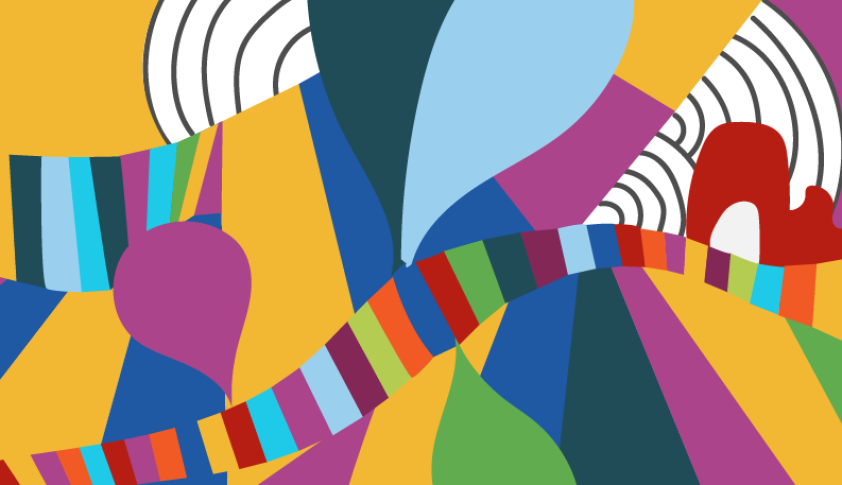
In 2020, the Association for Progressive Communications (APC) turns 30 years old, and to commemorate this special date we have asked the members of our network about their vision for APC in the next 10 years to come.
While we are celebrating what has been achieved in the past three decades, at the same time we are looking forward to more years of harnessing the collective power of activists, organisations, excluded groups, communities and social movements to create a just and sustainable world, challenging existing power structures and ensuring that the internet is developed and governed as a global public good.
This is how Arturo Bregaglio, from our Paraguayan member organisation Asociación Trinidad, Comunicación, Cultura y Desarrollo, envisions the next 10 years for APC:
A renewed commitment to hope and a challenge to our creativity
I applaud the initiative of reflecting on these issues, during these times. To do so demands not only imagination, but a renewed commitment to hope, and it is also a challenge to our creativity.
To start off by saying that the world has changed is basically to state the obvious. There has been so much written and said in the media, and I have never seen such a degree of globalised, real-time reporting, with numbers of deaths and survivors, counted by the hour.
The question I want to ask is whether, after the pandemic, life will have changed enough for us to start dreaming about other paradigms, or utopias; or once the global fear has passed, will we return to the paths we previously travelled, the ones that are precisely what led to this uncertain fate?
According to Spanish philosopher Fernando Savater, we won’t need to wait long to know the answer. “There have been many wars, and what has come at their end is never better. In troubled times, what comes to the fore is never the best of human nature; on the contrary, it is hatred and thirst for revenge that flourish. It is only after periods of well-being that new ideas and renewed hope can emerge.”
All of this leads me to reflect on APC’s principles and to try to identify the places in our world where positive results have been seen and the conditions are in place to guarantee access to the internet for all.
Internet access as a basic human right
Why not imagine that in 2030, access to the internet will be a basic right, freely available to everyone? Daily life and the internet will be inextricably entwined, and as a result, states will have the obligation to provide access to the internet just like any other human right, as APC has tenaciously envisioned since its very beginnings.
There are currently countries where access to the internet is free of charge. Our ongoing challenge is to raise awareness on every continent, at every international forum and in every nation, that internet access, which is so scarce in many places, must be viewed as a public good. And as such, any resources allocated to it should not be viewed as an expenditure, but as an investment, one that will improve the quality of life and have a positive impact on every area of our lives, from the economy to social relations.
APC has held firm to this vision for many years. Today it is up to us to continue insisting on the importance of this goal as often as necessary, so that the future does not remain as painful as it is in so many places around the world where internet access is the privilege of a few and an unmet need for the majority.
Global free public health care
A little less than a year ago, when I was chatting with an old friend from university, Dr. Carlos Pressman, a specialist in gerontology, he left me with the following unsettling image: “It won’t be long before we step into a booth like an ATM booth, get scanned by a machine, and leave with a diagnosis or test results, just by swiping our medical card.”
In the midst of the COVID-19 communication tyranny, I’m reminded of that conversation. Is it not perhaps time to put all of our efforts into preventing the next pandemic, as German Chancellor Angela Merkel has proposed to the other members of the European Union?
Of course there are many places in the world where public health is a priority and provided free of charge. Telemedicine will become increasingly common, and it is difficult to imagine a safe world, a shared home on a global scale, without health care ensured for all.
There are already some countries where technology-based treatments are being implemented. But the problem is the same as always: those who have access to them are very few. And undoubtedly, the first cases of COVID-19 were very few, until, almost in the flutter of a butterfly’s wings, the disease had spread like wildfire across the entire planet, making no distinctions with regard to region, social class, religion, culture or ethnicity.
It would be a wonderful learning from a tragic experience if APC and other organisations around the world could effectively highlight the intimate link between the internet and global public health.
The future cannot wait, and the present is punishing us. Either we look very closely at the current reality, or we could end up being, at any time, just one more number in the heartbreaking statistics.